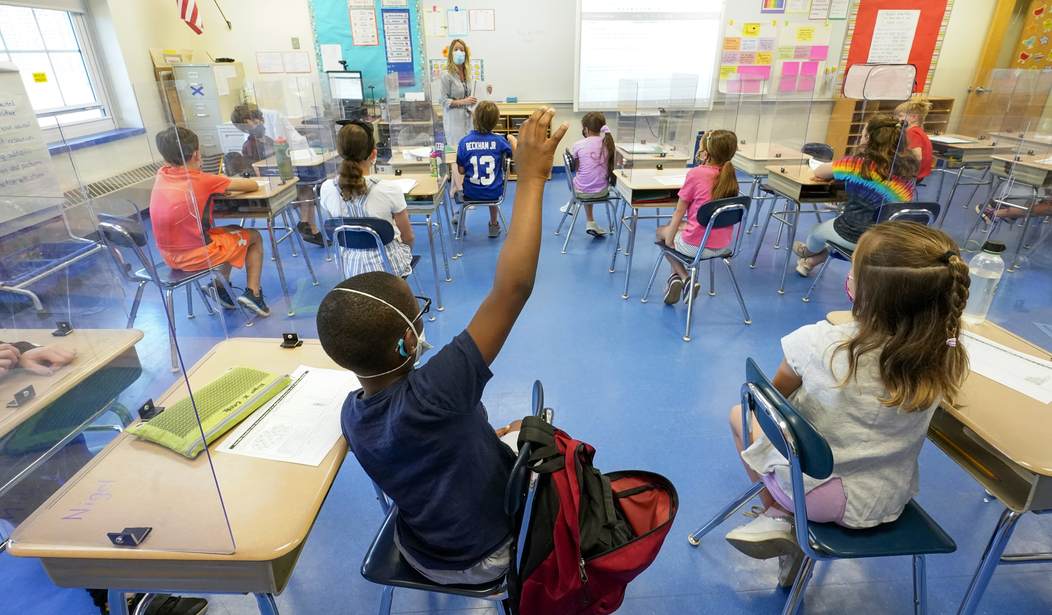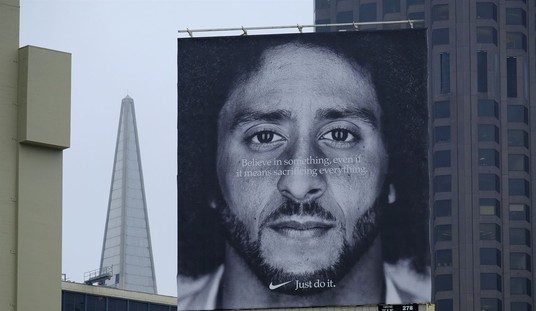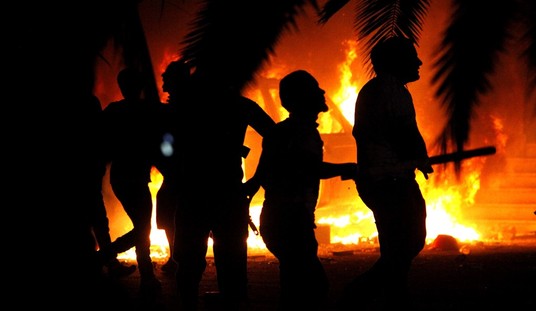The Oklahoma State Board of Education held a meeting Monday to listen to public comments on critical race theory before taking a vote on ’emergency’ rules on race instruction. Teacher unions continue to deny that critical race theory is taught to younger students and that it is reserved for students in higher education.
Oddly enough for the arguments presented to defend themselves from public criticism and legislation actions of state governments, teacher unions are aggressively pushing back in ways that include legal action. The NEA, for example, plans to fund an “attack machine” against critics of critical race theory instruction in schools. So, it is reasonable that state boards of education include parental and community input before voting on policies on such a hot-button issue.
Oklahoma’s House Bill 1775 was signed into law last month by Governor Kevin Stitt, a Republican. This law bans teaching certain concepts about race and sex in schools. The specific words critical race theory is not mentioned in the law and they were not used in the board meeting agenda.
Those concepts include ideas that “one race or sex is inherently superior to another race or sex,” that an individual should feel “discomfort, guilt, anguish” on account of his or her race or sex, and that “meritocracy or traits such as a hard work ethic are racist or sexist or were created by members of a particular race to oppress members of another race.”
A number of community members who were given time to share their thoughts on the bill spoke out against critical race theory, though the law does not specifically name the concept, nor did the board meeting’s agenda items detailing the vote.
Teaching upper-level students to think critically on big issues like race relations and the history of America is to be expected at the college or graduate school level. The purpose of higher education is to teach young people to think critically and form their own opinions. However, the kinds of lessons reportedly conducted in some classrooms of younger students, some as young as elementary school age, are way over the top. Lessons that include shaming white students for their race or presenting American history in a way that encourages scorn are not acceptable to most parents. The Oklahoma State Board of Education listened to the general public’s input. Are we no longer holding up Martin Luther King, Jr.’s words as inspiration on how we judge others? And, a teacher spoke about white privilege.
The first member to take the stand cited some of those concepts when discussing the “tenets” of critical race theory, though experts have said the actual tenets of the theory, which asserts that racism is embedded in the country’s institutions, are not the same those being criticized and banned by Republicans in classrooms.
“What happened to Martin Luther King’s dream of people being judged by the content of their character instead of the color of their skin?” the woman said.
A woman who identified herself as a teacher briefly mentioned the theory before discussing bias training she said educators were required to undergo in public schools.
“They tried to convince me that I have white privilege. Yes, I do have white privilege: the privilege to pay my taxes to go to work every day to support my God in my country. Those are my privileges,” she said. “I will never apologize for what God has made me. God doesn’t make mistakes.”
“Teachers were required to train every Wednesday on the Tulsa Race Massacre. Why was it OK to call it the Tulsa Race Riot for 99 years, even under an African American president?” she also stated.
People hold strong opinions in opposing what is seen as critical race theory in public school classrooms because it looks like indoctrination. It furthers the opinion that school teachers are liberal activists and their political ideology filters into their classrooms affecting what children are learning. The rise of critical race theory discussions is an offshoot of the Black Lives Matter movement. Before everything turned into hyper-divisive racial discussions, I’d venture to say that most people who didn’t sit in such a class in college or grad school had even heard of critical race theory. Granted my college days are from long ago but I wasn’t familiar with the term.
It is not often that my alma mater is mentioned in hot-button issue discussions. Imagine my surprise to see its name as I read about the Oklahoma State Board of Education grappling with this issue. Oglethorpe University is a small-ish private liberal arts university in Atlanta. Even back in the days when I was a student there, it was clear that conservative students were in the minority. I still clearly remember how it felt to be in a class and thinking that I surely was the only Republican in the room.
Laura Renée Chandler, vice president of diversity, equity and inclusion at Oglethorpe University, told The Hill last month that people “should reject or at least be a little bit more critical about having this conversation” on the terms of the conservatives who are targeting it, whom she noted are “not even defining it correctly.”
“It’s really important that we have informed voices who understand this work and who understand what teachers are actually doing in the classroom,” she said. “Those are the people who should have the conversation and not these politicians.”
Chandler’s message sounds like she’s telling conservatives to sit down and shut up, especially politicians trying to represent their constituents concerned about public education, funded by taxpayers.
Carlisha Bradley, the board’s only Black member, suggested that some were “operating on an unclear definition of critical race theory.” She voted against the proposed rules. In other words, if people object to critical race theory taught to children, it is because they just don’t understand it. She said rules “propel fear” and it’s the “true and accurate history of our country” being taught. Remember, teacher unions deny any of this is being taught at lower levels yet we continue to hear teachers defend teaching it.
“I think about my instruction and experiences and oftentimes it started with slavery, Martin Luther King had a dream, and then here we are. That negated the complexities of being a Black woman, person, student in America,” she said.
“It left room for conversations that were not had in the classroom to move, grow and evolve as human beings to arrive at a more equitable society,” Bradley said, adding that she believes the rules the board eventually voted to adopt as a result of the recent legislation passed in the state are “robbing students of the opportunity to have a high-quality education, to think critically about the world around us and to build a more just society.”
“And, you know, when we’re quoting Martin Luther King Jr. and being judged by the content of our character, not the color of our skin, I think that we’re glossing over the fact that Martin Luther King Jr. led a radical movement for justice on many levels, racial justice, economic justice, and it challenged the laws and systems that we continue to uphold,” she also said.
No final decisions have been made by the board.








Join the conversation as a VIP Member